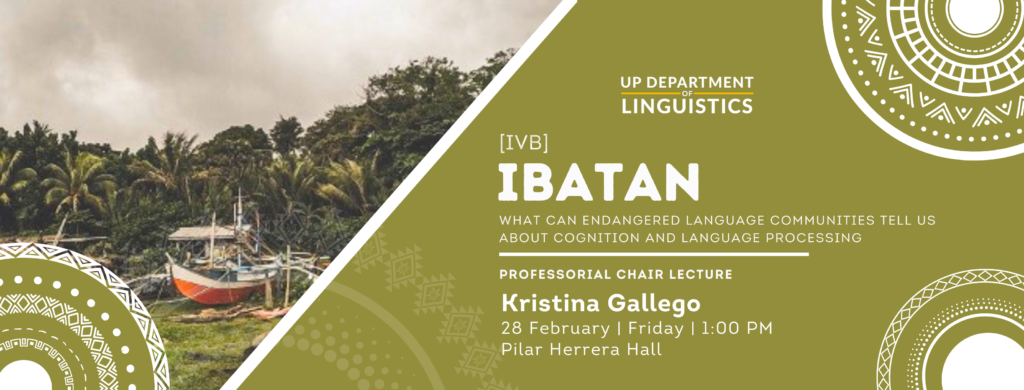Ibatan [ivb] | Philippine Indigenous Languages Lecture Series
- Date: 28 Feb 2025 | 1:00 PM - 2:30 PM
What can endangered language communities tell us about cognition and language processing
Philippine Indigenous Languages Lecture Series (PILLS)
28 February | Friday | 1:00 PM
Pilar Herrera Hall
The 26th installment of the Philippine Indigenous Languages Lecture Series (PILLS) will be on Ibatan, a language spoken in the northernmost part of Luzon.
ABSTRACT
Many studies that investigate language processing and cognition come from the perspective of western, large-scale, and industrialized societies. For other types of societies, usually involving endangered languages, linguistic norms may differ significantly. For instance, endangered language communities can contribute to what we know about bilingualism and psycholinguistic concepts such as language dominance. That is, the social, cultural, historical, and multilingual contexts of such communities directly influence how speakers use and process their language/s. Thus, there is a need to consider a wider empirical foundation to enrich our understandings of language and language use.
This study focuses on Ibatan, an endangered Austronesian language spoken in the far north of the Philippines. The language reflects parallel native and non-native structures in its morphology. Several of its non-native features have been adapted from Ilokano, which is the main language in contact with Ibatan. How do speakers of Ibatan, with varying degrees of language dominance, process, analyze, and use these competing structures? It is argued that various factors interact to drive language change in Ibatan, including psycholinguistic factors such as language dominance, as well as social factors such as population structure. Ultimately, the study highlights how endangered language communities can contribute to what we know about cognition and language processing more widely.

